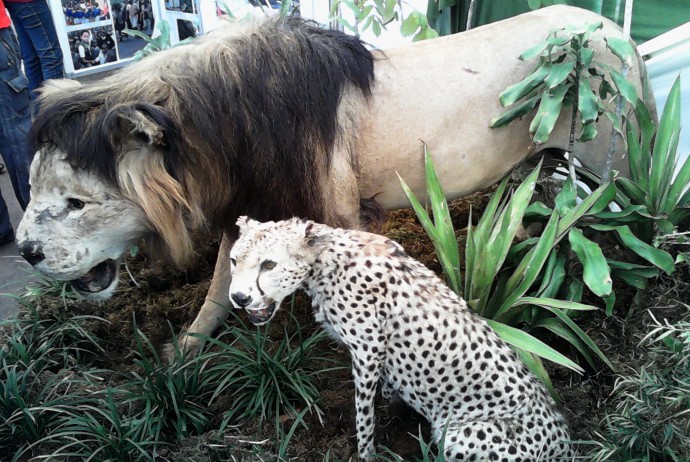“When we plant trees, we plant the seeds of peace and hope.” Wangari Maathai
. “The best time to plant a tree was 20 years ago. The second best time is now.” – Chinese Proverb

March 2014 has marked the inaugural day World Wildlife Day on March 3 and the second anniversary for International Day of Forests on 21st March. Human beings tend to forget quickly and the formation of these two events was just icing to the cake.
Days like this are meant to remind people about their surroundings, their ecosystem in general, and in turn, possibly mitigate ecosystem destruction and deterioration.
Students at the World Wildlife Day function held at the Kenya Wildlife Service Headquarters.
Taxidermy’s at the event.
We therefore need to commemorate this days as they;
· Provide an opportunity to celebrate the many beautiful and varied forms of wild fauna and flora
With our busy lives and our gadget always with us, we seem not to see what’s around us. We fail to notice the trees that blow with the wind gracefully and the birds that sing and fly around us unknowingly. We also fail to recognize the wild animals roaming in wild open areas, striving to see tomorrow before they get hunted or die because they haven’t been able to catch anything in days. I think wild animals have long days more than we do.
“The universe is full of amazing things that we probably stepped on when staring at our smartphones and tablets.”
· Raise awareness of the multitude of benefits that conservation provides to people.
Majority of people are not aware of the services that the ecosystem gives us. The ecosystem provides for us food and other raw materials such as timber and medicine. It offers regulating services protecting us from floods and absorbing the amount of wastes we produce. It also ensures we have recreational areas and places of aesthetic enjoyment including tourism which we are able to benefit from. The ecosystem also supports in soil formation and oxygen production making sure that we are able to live and produce abundantly what we require in our daily lives.
All this benefits are only available when we conserve our environment ensuring that we never run out of what the ecosystem has to offer.
· Reminds us of the urgent need to step up the fight against wildlife crime and forest destruction which has wide-ranging economic, environmental and social impacts.
Wildlife crime is a very serious offense in most parts of the world and an economic sucker especially for countries who mostly depend on wildlife and forest.
Crimes such a trade in endangered species of flora and fauna; result in such activities such as poaching and destruction of forests.
Poaching, a well organized, well-funded organization, results to the death of elephants, rhino and tigers because of their tusks, horns, and teeth, respectively, which are on top of the list for consumers in most Asian countries who use this products in Traditional Chinese Medicine or as a social status.
This activities need to be dealt with on a hands on basis by informing the consumers that animal parts do not cure any illness as they may have been told. A much more effective strategy would be to ban trade of animals and there parts at a global level.